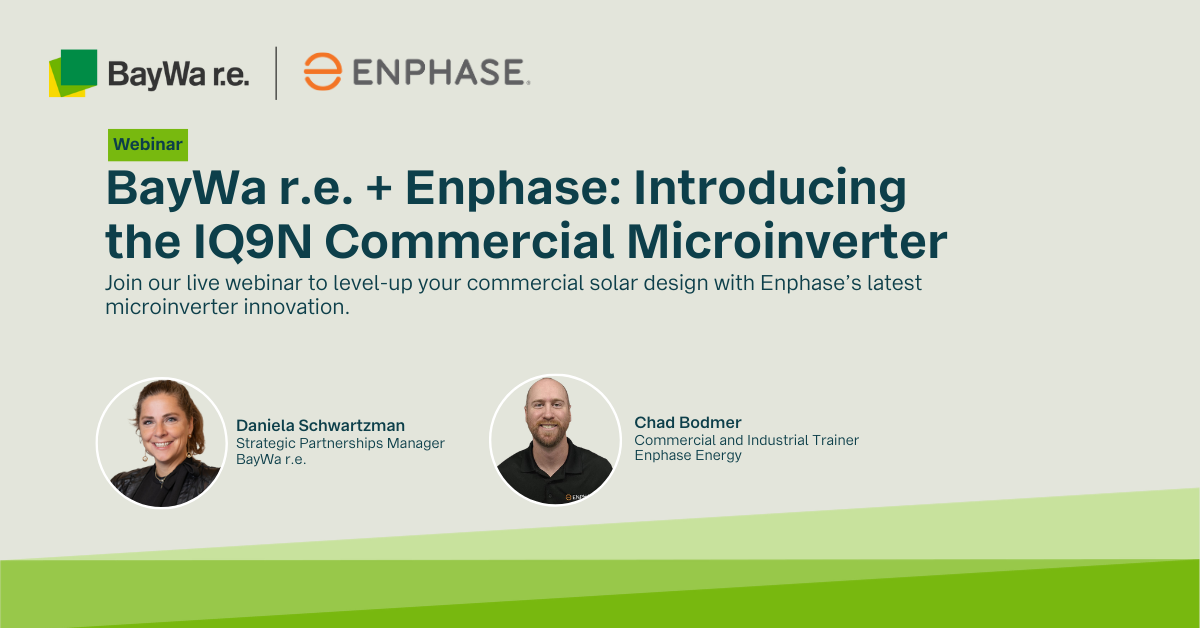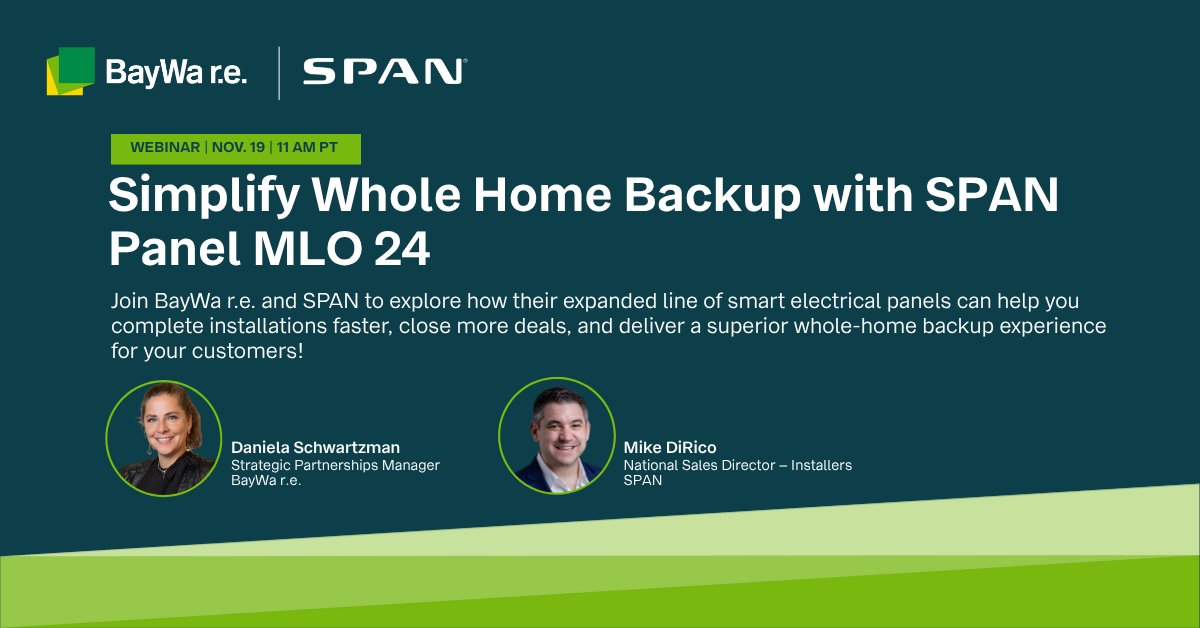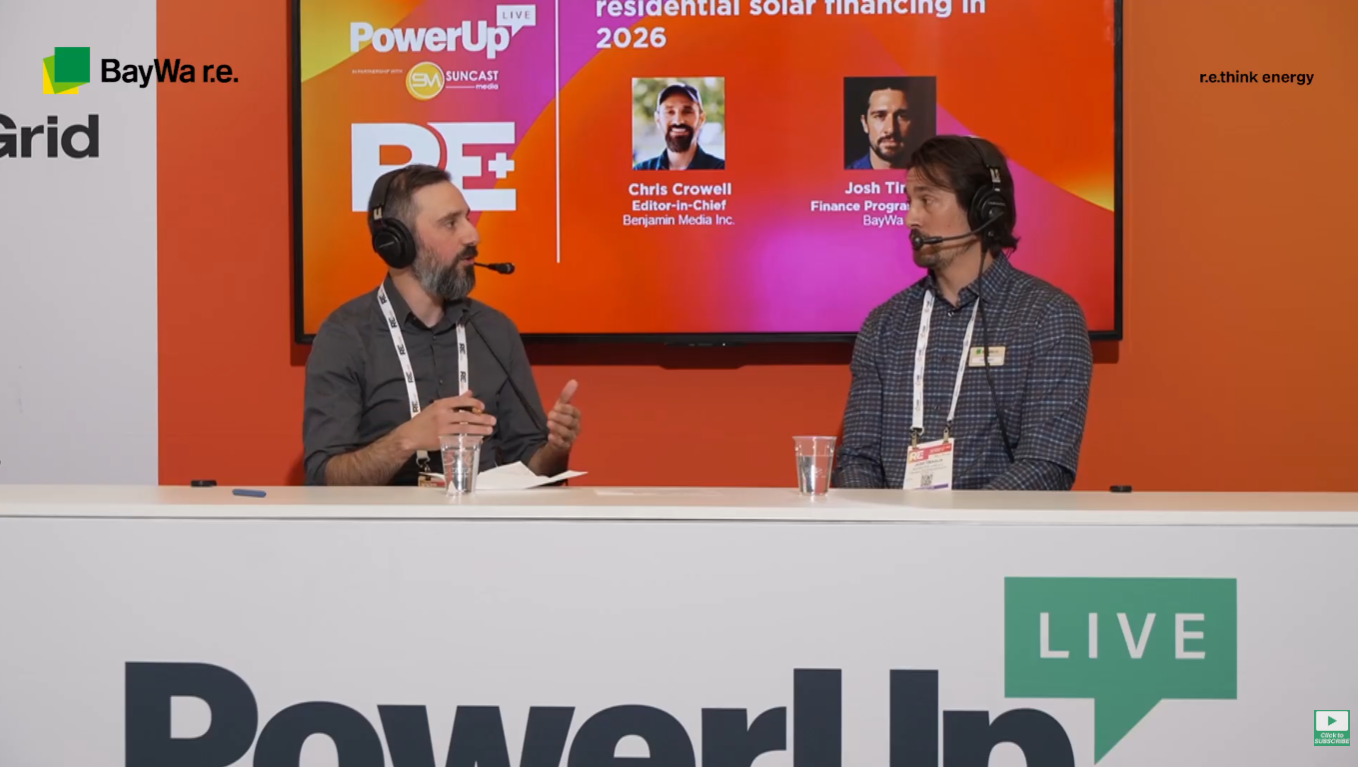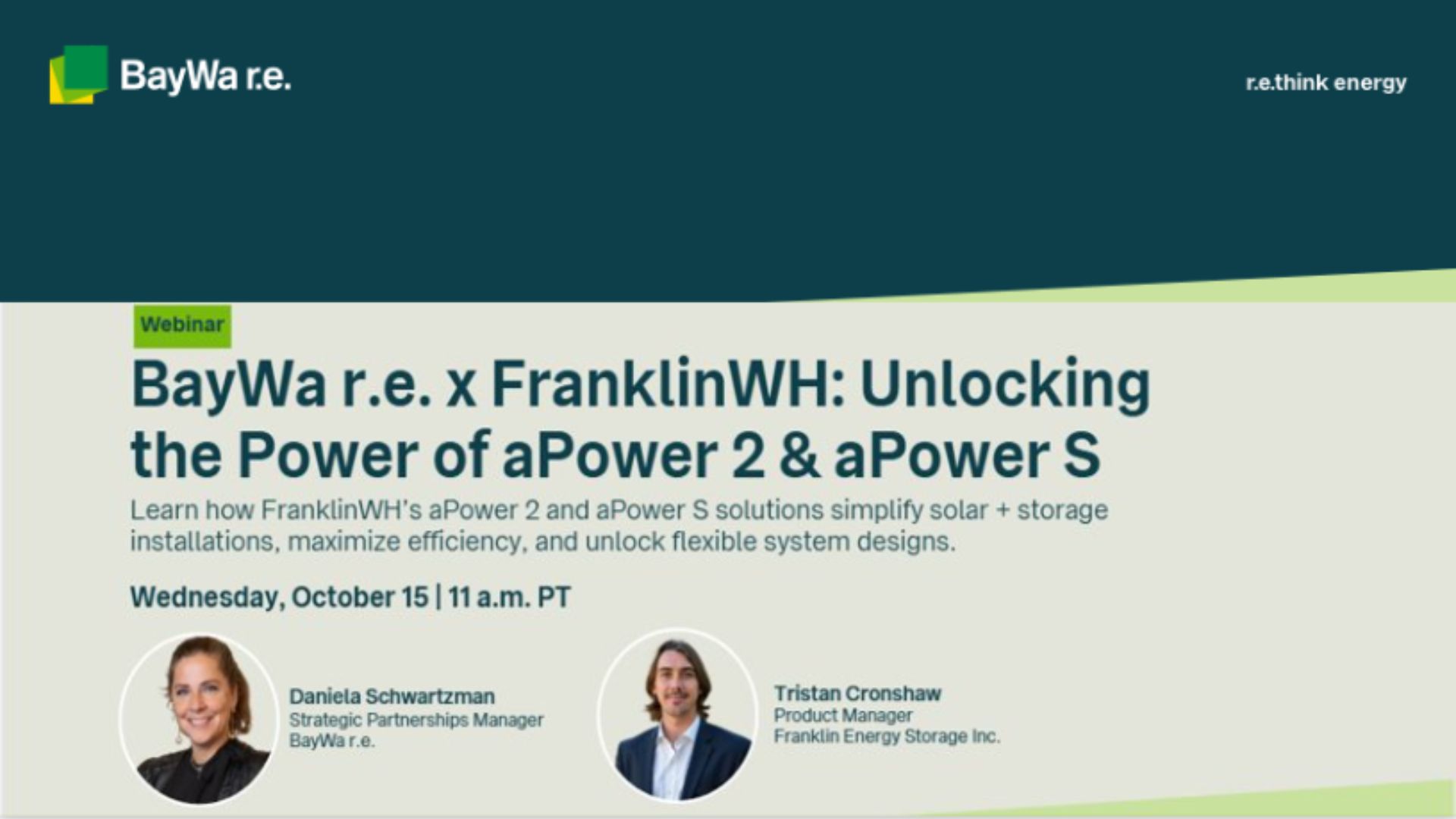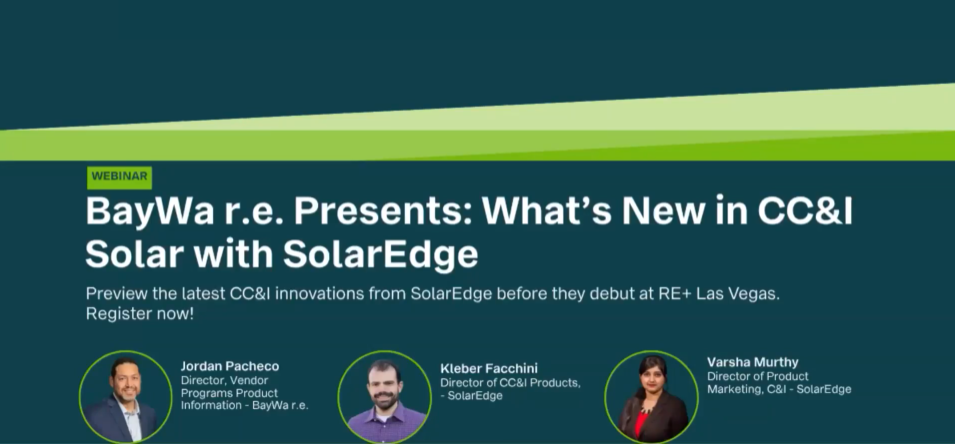- Which financing products to consider
- How to talk with homeowners about which products are right for them
- How an installer can qualify for financing
- Which solar financier is a good fit for their company
- Industry trends
- Dealer fees
- When a high APR product may be better
Read on for some highlights from the discussion and listen to the full podcast for the complete download on the most pressing topics in the solar financing landscape.
- Gregg Fisher, Senior Director of Business Development at GoodLeap (formerly LoanPal)
- Robyn Kenkel, Senior Director and Head of Counterparty Risk at Mosaic
- And our own financing guru, Rachel Schapira — who is always available to discuss how BayWa r.e. can support your business goals with our Split Pay financing program.
Thanks for following and enjoy the podcast!
PODCAST HIGHLIGHTS:
What questions installers should be asking financiers (14:19)
“One is, what are your approval rates for customers? What are your stipulation rates? We do ask customers to prove figures like income or property verification. What are your payment terms? How do you pay your contractors, so that I can understand how I’m going to need to manage my cashflow? And some of the questions that I would be asking is; how do you support your partners? How do you help me grow? How do you teach me how to sell financing? And do you have any special programs that help me with equipment to get access to equipment — or have special pricing on equipment based on volume?” — Robyn Kenkel, Mosaic
“One of the questions I would ask is, have you ever not been able to meet your payment obligations? Meaning, did you commit more capital than you had availability to, or on hand… in the same way if I was talking to a manufacturer about a direct relationship and I wanted to know, have you ever told a partner of yours that you made a commitment to, that you didn’t have enough of equipment for them.” — Gregg Fisher, GoodLeap
How to evaluate what finance products are right for each homeowner (28:30)
“This is the miss for most solar sales professionals. They ask all the right questions about ‘how do you use power’ and ‘are your kids going to be home much longer’ and ‘do you think you’re gonna use more power when you have solar.’ But they don’t ask all those questions about financing. So how long do you plan on being in the house? How often do you refinance — do you plan on applying the tax credit at month 18, to the buydown with the loan? Or do you plan on keeping that — some people will tell you, ‘Hey, I have cash. I could do it, but gosh, money is so cheap right now. I just figured I’d leveraged free money through the tax credit.’ These are all questions that [contractors] should be asking to help [homeowners] get to the right financing solution.” — Gregg Fisher, GoodLeap
What’s popular right now (41.15)
“The sub 2% products that we carry can continue to remain to be really popular. Our flex pay product —which has some different components to really helps drive a lower payment for the first 18 months. So, it’s really a loan design for somebody who doesn’t plan on having that loan full-term. That’s been wildly popular for us, especially in markets where the retail cost of electricity is relatively low — like Florida, Texas, Arizona — but usage is significantly higher. Everyone’s got a different philosophy, and GoodLeap’s philosophy on the 0.99 and 0.49 might be a little bit different than some of the peers in our space, but that has been something that we introduced, probably six months ago, that really has caught on with certain market segments. Simply because of some of the flexibility in the payment structure, but also that low payment opportunity.” — Gregg Fisher, GoodLeap
“Another thing that I think is really important as transferability of a loan. Customers want to be sure that if they’re going to move in two years or seven years or 20 years, that they’re able to transfer the rest of that loan. Also, I think since the conversation has now moved to resiliency, batteries are very interesting. I think last year, we had 1.3 billion power outages hours in 2020 as compared to 770 million hours. And so, it’s really on top of mind for customers, especially in those coastal areas. Everybody’s interested in batteries. They might not be able to get on, but it’s definitely a conversation point.” — Robyn Kenkel, Mosaic
Market trends in residential solar financing
“I think that a lot of contractors are starting to think about O&M. We see some of these installers walk into new markets and they’re not able to handle or scale into those new markets — and they leave abandoned customers. Financing companies will reach out and ask other folks to help complete those projects — but post-PTO, if quality was an issue from the very beginning, that system is going to be plagued with problems for many years to come. So, a lot of contractors are adding on 25-year warranties or maintenance agreements with their customers to give them peace of mind. But again, we are seeing new entrants into this space that are offering warranties for a cost. So, I think that more contractors are thinking about ‘how do I get in on this side of the business without taking away from my current install capacity’ — because that’s how they make money right now. It’s not being made on going back out and fixing customer systems. They’ve to figure out how they can balance the two and still provide that warranty service.” — Robyn Kenkel, Mosaic
“I’ve talked to a lot of installers who have struggled with this very issue, because they’re not accounting for providing O&M on an ongoing basis to their customers — but they live in fear that a customer is going to give them a bad online review if they don’t provide the O&M service. And I still think that there’s a substantial gap between the need in the market and the market penetration of these new O&M providers. I’m glad they’re here.” — Rachel Schapira, BayWa r.e. Solar Systems / US
Again, these are just a few snippets from our much longer conversation. Queue up our chat on Spotify on your next drive to the job site or warehouse downtime!
Show Note: Since this podcast was recorded in early August 2021, some manufactures have already begun petitioning the US government to extend the Chinese tariffs. We will keep you posted as the news develops. — Rachel Schapira
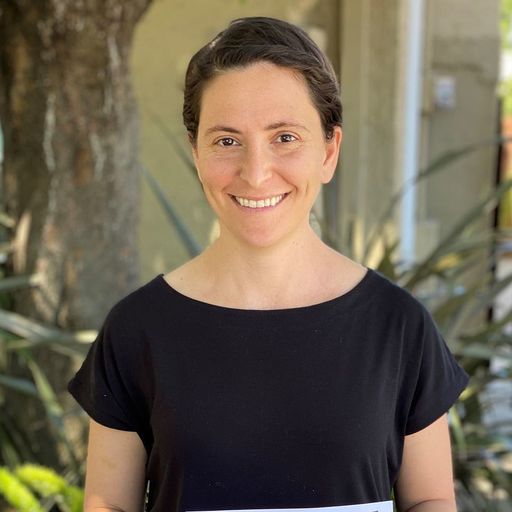
Rachel Schapira is Director of Residential Financing with BayWa r.e. Solar Systems. She has worked in energy and technology management for more than 15 years, joining us in March 2020 from Mosaic.
BayWa r.e. Solar Distribution supplies residential and commercial solar installers in the United States with quality solar + storage components, forecasting, business planning advice, and a community of experts. Visit www.solar-distribution.com to engage with our team, read our industry insights articles, and stream our Solar Tech Talk podcasts and recorded webinars on YouTube and Spotify. Follow us on LinkedIn and Facebook to stay connected. Ask us about our Financing Program and use our industry-leading Webstore to save time, get gear shipped, and get jobs done!
Part of the BayWa r.e. Global family of renewable energy companies.
